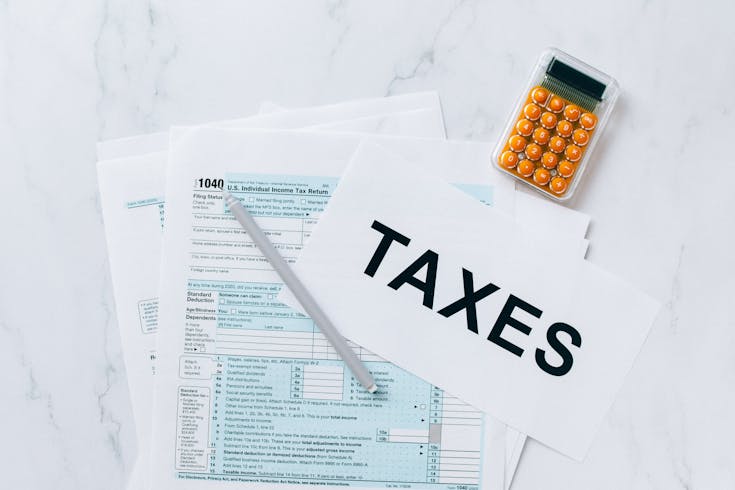Tax ratio is a vital measure of how effectively a government collects taxes relative to the total economic output of a country, represented by its Gross Domestic Product (GDP). In Indonesia, this ratio serves as a key indicator of fiscal performance and economic health, drawing the attention of policymakers, investors, and international observers alike.
What is Tax Ratio?
Tax ratio is the proportion of total tax revenue collected by the government to the GDP. It provides insights into how well a country mobilizes revenue to fund public services and development projects. A higher tax ratio typically indicates a more robust taxation system and a higher capacity of the government to invest in economic growth and social welfare.
According to the Indonesian Directorate General of Taxes, tax ratio also reflects the relationship between government and citizens in economic terms. It measures the government’s ability to leverage economic activities for tax collection, thereby supporting public policies and development goals.
Also read: Understanding Indonesia’s Tax Bracket System (Latest Update)
Indonesia’s Current Tax Ratio


According to Finance Minister Sri Mulyani, as reported by CNBC Indonesia, Indonesia’s tax ratio as of October 2024 reached 10.02% of GDP. This figure marks a slight improvement from 2023, which recorded a tax ratio of 10.21%. However, it remains below the government’s ambitious target of 11.2% to 12% by 2025.
To achieve this goal, the Indonesian government has outlined strategies such as increasing per capita income and promoting regional economic development. These efforts aim to elevate Indonesia’s economic standing and address the challenges of the middle-income trap.
Also read: Tax Holiday in Indonesia: A Comprehensive Guide for Foreign Investors
Why Tax Ratio Matters
Tax ratio is more than just a statistical figure. It indicates:
- Economic Growth: A stable or increasing tax ratio reflects healthy economic growth and higher purchasing power.
- Government Revenue: A higher tax ratio enables the government to fund infrastructure, education, healthcare, and other essential services.
- Fiscal Policy Effectiveness: It showcases the efficiency of a country’s taxation system and its ability to address structural economic issues.
Also read: Indonesia Tax Rate for Foreigners: What You Need to Know
Factors Influencing Indonesia’s Tax Ratio


Several factors contribute to Indonesia’s tax ratio:
- Economic Growth: As GDP grows, the government’s ability to collect taxes also increases.
- Tax System Efficiency: Transparent and efficient tax collection processes enhance compliance and reduce evasion.
- Political Stability: A stable political environment encourages investment and economic activity, leading to higher tax revenue.
- Structural Reforms: The government’s efforts in reforming tax policies, such as simplifying procedures and expanding the tax base, play a crucial role.
Also read: Progressive Tax in Indonesia: Complete Guide for Expats
Challenges and Opportunities
Indonesia’s relatively low tax ratio compared to other countries highlights room for improvement. Challenges include a large informal sector, limited tax compliance, and administrative inefficiencies. To address these challenges, the government is prioritizing:
- Digital Transformation: Implementing technology-driven tax collection systems to improve efficiency.
- Public Awareness: Educating citizens and businesses about the importance of tax compliance.
- Expanding the Tax Base: Incorporating more sectors and individuals into the formal tax system.
Indonesia’s tax ratio, currently at 10.02%, underscores both the progress made and the challenges ahead in strengthening its taxation system. Achieving the government’s target of 11.2%-12% by 2025 will require sustained economic growth, structural reforms, and enhanced public trust in the tax system.
For foreigners seeking to invest or do business in Indonesia, understanding the tax ratio provides valuable insights into the country’s fiscal stability and economic prospects. By improving its tax ratio, Indonesia aims to create a conducive environment for growth and development, benefiting both domestic and international stakeholders.
Rely on Investinasia’s tax consultants to take care of your taxes
Understanding Indonesia’s tax obligations can be challenging due to its evolving laws and policies. Foreign businesses and individuals often benefit from working with local tax consultants who offer expertise on regulatory compliance, tax calculations, and legal obligations.
Partnering with a reputable consultant like InvestinAsia’s Indonesia tax consultant and compliance services can simplify your tax management and ensure full compliance with Indonesian tax laws.
Our experienced team of professionals is ready to assist you in every tax matter, such as:
- Accounting and tax reporting services in Indonesia
- Indonesia Payroll Service
- Indonesia LKPM Reporting Service
- Indonesia VAT Taxpayers Registration
Contact us now for FREE consultation and special package!
Sources:



